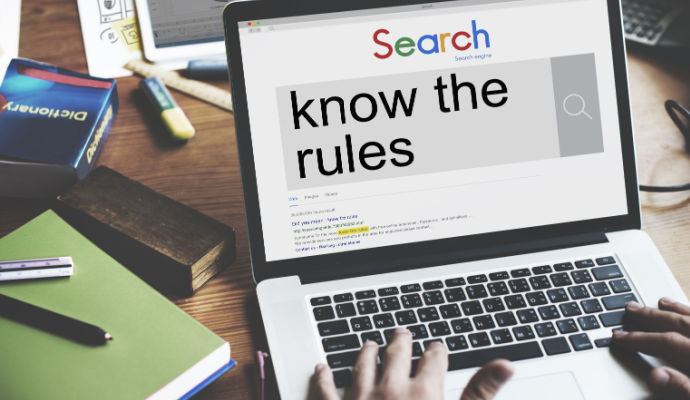Any ecommerce website’s beating heart is SEO. You may have amassed a significant online business. All of your efforts, however, will be for nothing if your site is not easily found on search engines.
Your new store may lose a significant amount of traffic if you don’t have a well-thought-out SEO plan. It’s possible that your Google ranks will drop, making it more difficult for your target audience to find your store online. In the worst-case scenario, your potential clients may turn to your competition. This is something you don’t want to happen.
Don’t worry, we’re here to help you.
What is SEO for Ecommerce?
To start with, Search Engine Optimisation, or SEO, is a collection of techniques for improving the appearance and positioning of web pages in organic search results. Because organic search or Search Engine campaign management is the most common method for people to find and access online material, an effective SEO plan is critical for increasing the quantity and quality of traffic to your site.
The problem is that search engine marketing strategies are easier to apply to content-based websites. It is simple to include keywords and cross-references in a blog article, but it is more complicated to understand how Google ranks search results for e-commerce.
Thus, when it comes to e-commerce search engine marketing strategies, include not only the use of keywords and references but also a thorough understanding of how Google search works and what requirements must be met in order to facilitate the buyer’s purpose to complete the transaction.
Essential SEO Tactics for Ecommerce Platforms
There are numerous methods for driving organic traffic to your e-commerce site. The e-commerce SEO strategy typically involves, but is not limited to:
- Use keywords, with the idea that the keywords are actual terms that your clients are looking for.
- Creating a website architecture based on the results of the keyword research.
- On-page SEO combined with strategic keyword optimization, which includes meta-tag optimization.
- Using technical SEO techniques, such as the correct use of crawlers to help google effectively crawl the website.
- Local SEO is used to ensure that organic traffic originates from the intended location (this is especially important if you have a brick-and-mortar store in addition to the digital one).
- Building links and cross-links to increase the website’s authority.
- Using Google tools to measure marketing success.
Ecommerce SEO Best Practices

SEO for e-commerce is a complicated subject because it is not easy to make your website stand out. The primary idea is to increase organic traffic to your website, but how do you get more people to come to your site? Working on navigation, improving linking, and adding alt tags for photos are all smart places to start. More helpful recommendations can be found below.
Ecommerce Keyword Research
The first step in improving SEO is to conduct keyword research. When it comes to keyword research, it’s important to make sure that the keywords you’re using are relevant to your target audience’s demands.
Furthermore, thorough keyword research allows you to use the exact terms that will assist your website’s rank on Google’s first page. As a result, when it comes to keyword tracking, be sure you’re getting the appropriate ones because they’re the foundation of your SEO strategy’s success.
Site Architecture
Site architecture is a fundamental tool that many businesses overlook. First and foremost, the site layout should be designed to make it easier for customers to find the specific product they are looking for.
E-commerce websites can feature millions of pages, making it difficult for clients to find the specific product they require. As a result, the website’s architecture should be designed to promote user flow through the site. When visitors can locate what they’re looking for quickly, their chances of making a purchase increase.
Use Schema Markups to Assist Google and Users in Understanding Content
HTML tags called schema markups are used to mark up content for search engines. As a result, when it comes to employing markup on your website, it aids in the optimization of your SEO approach. Additionally, the usage of HTML markup aids in the display of more precise things in search results.
The usage of markup results in rich snippets, which aid visitors in finding the items they want and need more quickly. In addition, when adding markup to your pages, consider the type of page you’re working on. There is a distinction between markup applied to a review page and markup added to a music page. When it comes to the product page, product markup snippets are advised.
Link Building for E-commerce
Link building is essential for SEO because it helps to improve your Google rating. When your website has a sufficient number of links to other websites, Google recognizes it as credible. As a result, it appears higher in the search results.
Backlinking is also a good way to improve your rating. The quickest strategy to increase your linking is to add backlinks to your content or to use social network ads. It’s also a good idea to create and link press releases, blog comments, and case studies. Simply link them to your website properly.
Best Ecommerce SEO Services
In general, you’ll need to apply the right Search Engine Optimization services to make your e-commerce SEO plan succeed. For example, you may use the following techniques to improve your SEO and raise your online presence.
Building an SEO plan isn’t easy. Apart from applying the above strategies in your Search Engine campaign management, you should also hire someone to help you as it could be a wise investment for your e-commerce platforms’ future.
Neuronimbus is a reliable SEO services expert, with nearly 20 years of business experience. They offer various SEO tools, including reporting, keyword analysis, and SEO audits. Having served over 100+ clients like
Panasonic, KFC, PWC, Apollo, Bose, Havells, Mahindra, Ford, Whirlpool, Revlon, Sofy, Pizza Hut, and several others, Neuronimbus stands as a market leader for all your SEO and marketing-related-concerns.
Visit the website to know more today!
FAQs About SEO Strategies for Ecommerce Sites
Q. What are SEO strategies for ecommerce sites?
A. SEO strategies for ecommerce sites are techniques and practices designed to improve the visibility and ranking of online stores in search engine results, thereby driving organic traffic and sales.
Q. Why is SEO important for ecommerce websites?
A. SEO is crucial for ecommerce websites as it helps in attracting targeted traffic, improving user experience, increasing brand visibility, and ultimately boosting sales and revenue.
Q. How can I conduct effective keyword research for my ecommerce site?
A. Conduct keyword research by identifying terms your target audience uses, using tools like Ubersuggest or Ahrefs, analyzing competitors, and focusing on long-tail keywords relevant to your products.
Q. What role does site architecture play in ecommerce SEO?
A. Site architecture is vital for ecommerce SEO as it helps in organizing content, simplifying navigation, enhancing user experience, and making it easier for search engines to crawl and index the site.
Q. How can I optimize product pages for better SEO?
A. Optimize product pages by using relevant keywords, creating unique and descriptive product titles and descriptions, optimizing images, and including customer reviews and ratings.
Q. What is the importance of mobile optimization for ecommerce SEO?
A. Mobile optimization is essential as more consumers shop on mobile devices, and search engines like Google prioritize mobile-friendly sites in their rankings.
Q. Can social media integration benefit my ecommerce site’s SEO?
A. Yes, integrating social media can benefit SEO by driving traffic to your ecommerce site, increasing brand exposure, and encouraging social sharing which can indirectly influence rankings.
Q. How do backlinks affect ecommerce SEO?
A. Quality backlinks from reputable websites signal to search engines that your ecommerce site is trustworthy and authoritative, thus positively impacting your SEO.
Q. Should I use schema markup for my ecommerce site?
A. Using schema markup is beneficial as it helps search engines understand the content of your pages better, potentially leading to richer search results and higher click-through rates.
Q. What are some common SEO mistakes to avoid on ecommerce sites?
A. Common mistakes include ignoring mobile optimization, having duplicate content, poor site structure, not using product reviews, and neglecting ongoing SEO maintenance.
